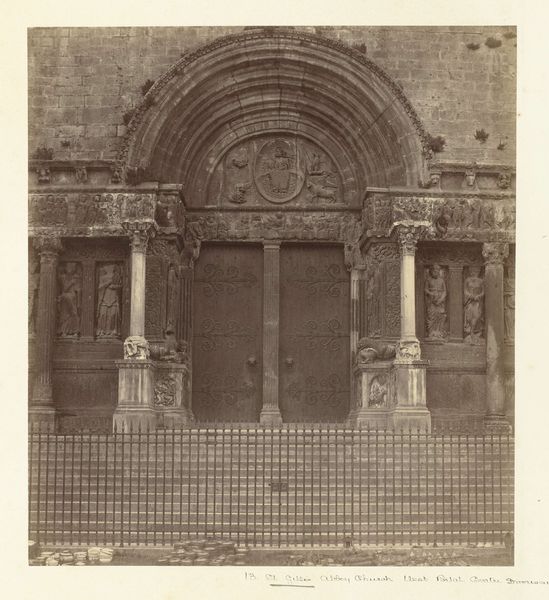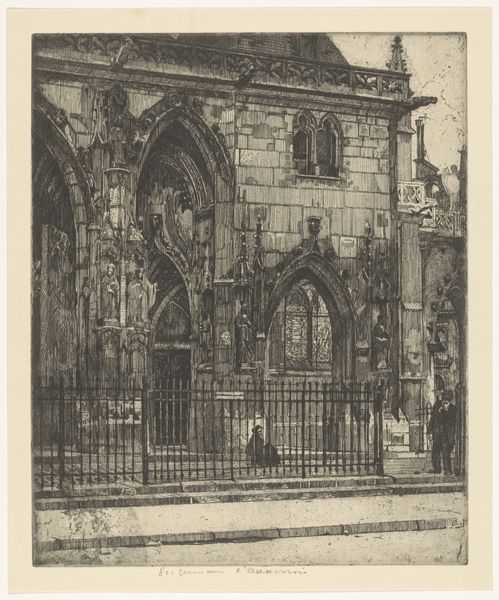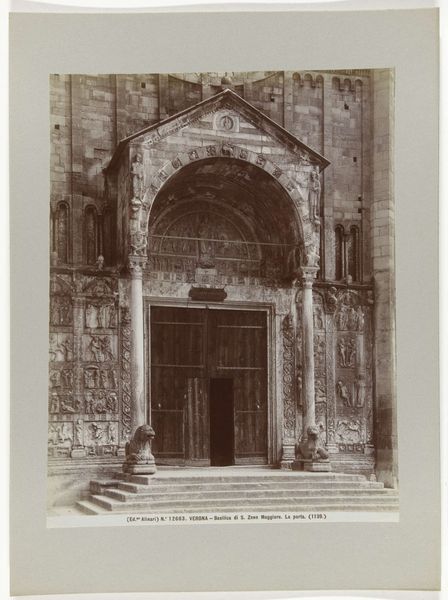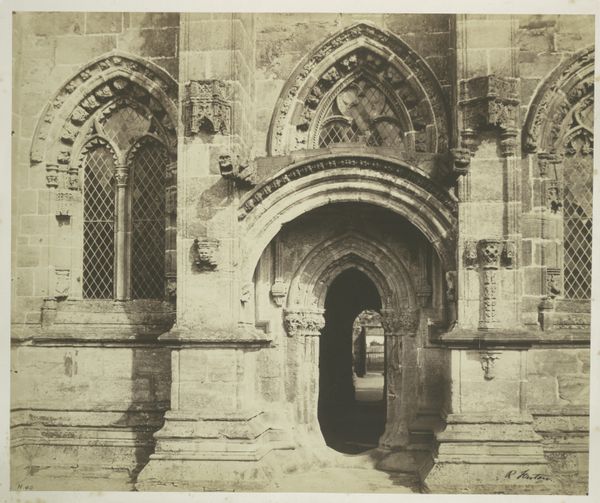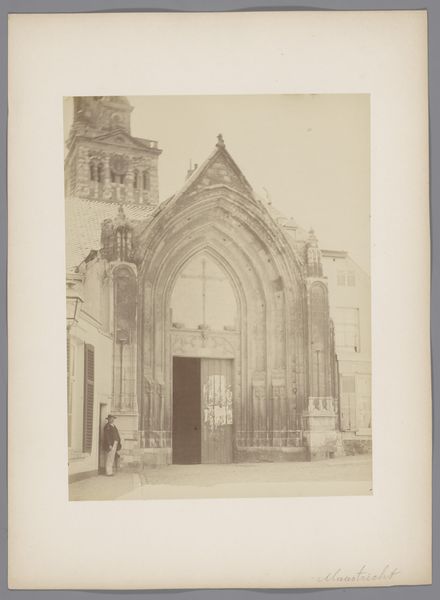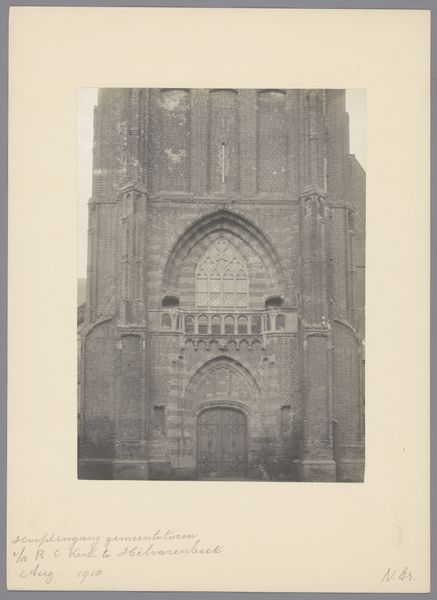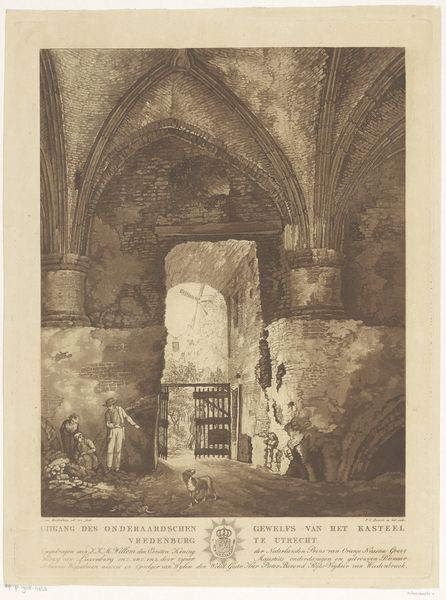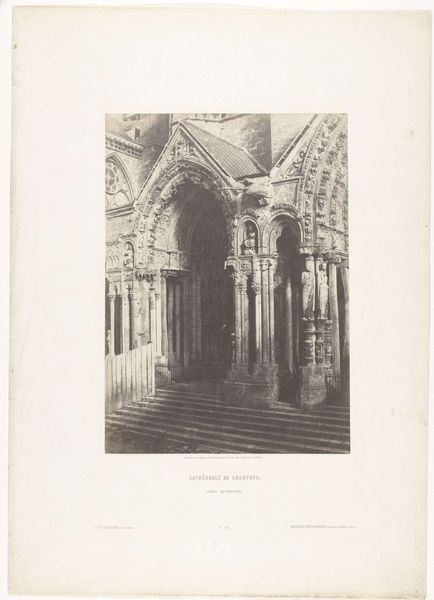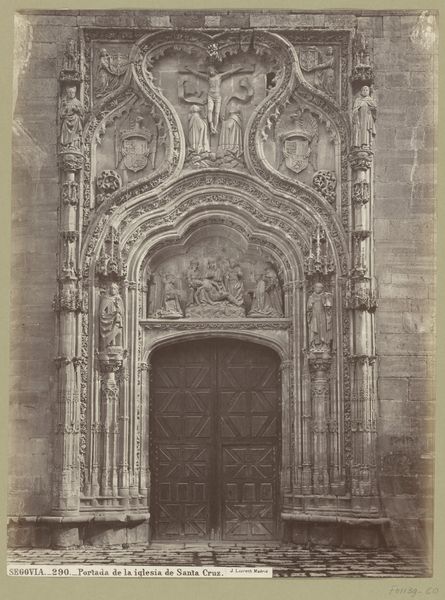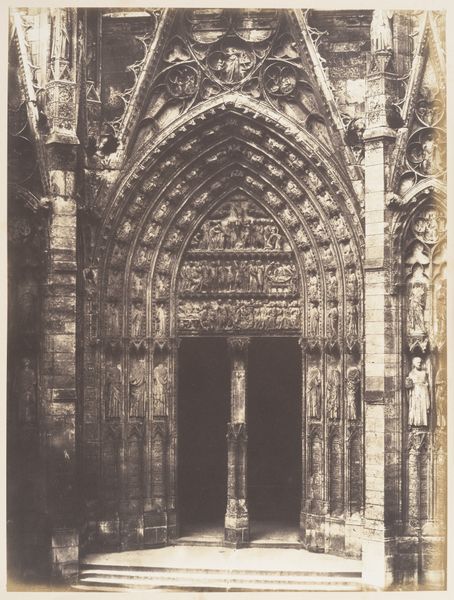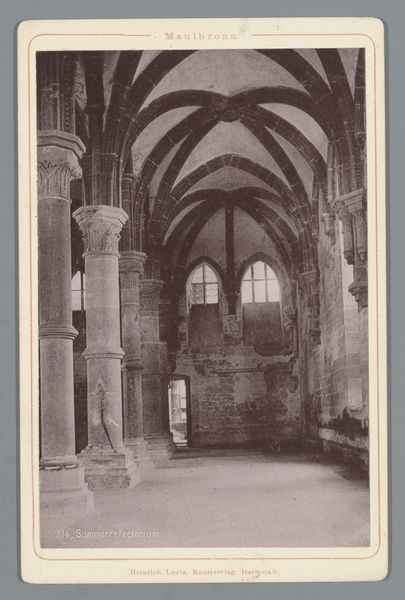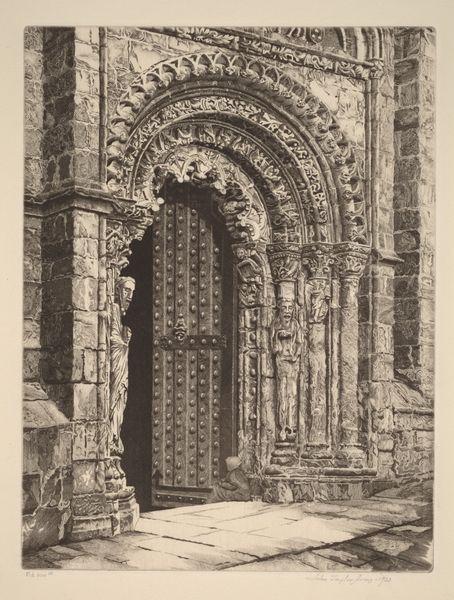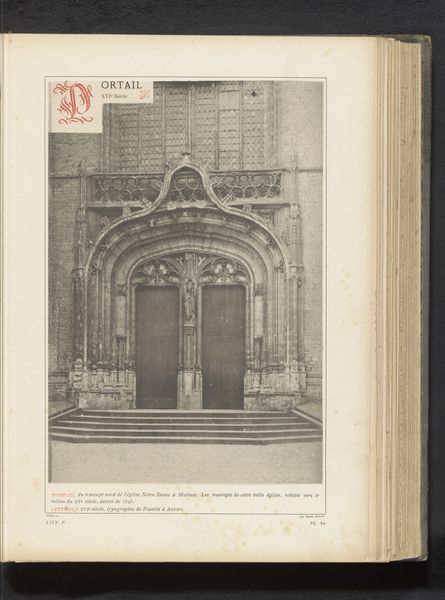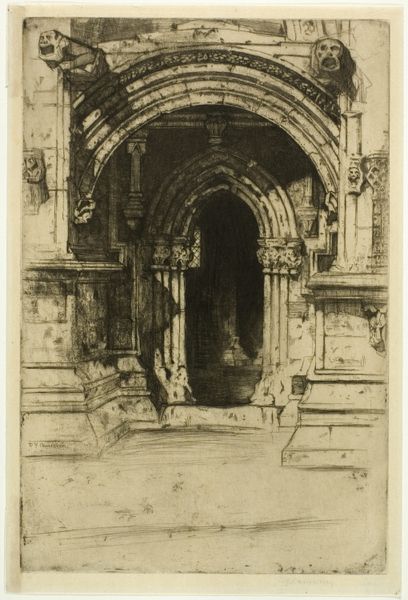
Arles: The West Porch of Saint-Trophime Possibly 1854 - 1982
0:00
0:00
print, photography, gelatin-silver-print, architecture
#
16_19th-century
#
pale palette
#
ink paper printed
# print
#
old engraving style
#
landscape
#
photography
#
romanesque
#
gelatin-silver-print
#
france
#
cityscape
#
architecture
Dimensions: 30 × 24 cm
Copyright: Public Domain
Editor: This gelatin silver print is called "Arles: The West Porch of Saint-Trophime" and is attributed to Charles Nègre, possibly from 1854-1892. It has an almost ghostly feel. How do you interpret this work, considering its historical context? Curator: I see this not just as a depiction of architecture, but as a social document. Nègre was working during a time of immense social change. This photograph, with its focus on the imposing facade of a religious building, prompts us to ask: who was granted access to such spaces? Who was excluded? The church represented power, and photography, a nascent technology, allowed that power to be disseminated, though not always equitably. What do you notice about the way Nègre frames the entrance? Editor: The perspective is head-on, making the entrance feel very imposing and monumental, as if barring entry. Almost as though he’s questioning this established authority. Curator: Precisely. Consider the power dynamics inherent in both the church as an institution and the act of photographing it. This isn't just about aesthetics; it’s about representation, about who gets to tell the story. The Romanesque style further emphasizes this history, doesn't it? Editor: Yes, it speaks to a long, layered history of power structures. Thinking about it, this image then isn’t simply a photograph, it’s an intersection of power, history and representation captured in a single frame. Curator: Exactly. And that’s why considering the social and historical context is so crucial when looking at any artwork. Editor: This really shifted my perspective on how to analyze photographs!
Comments
No comments
Be the first to comment and join the conversation on the ultimate creative platform.
